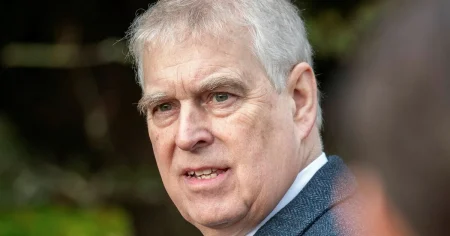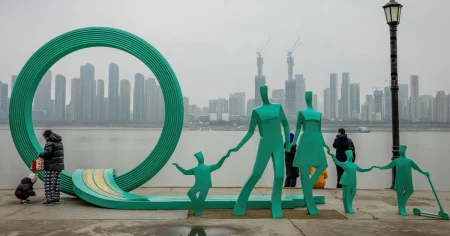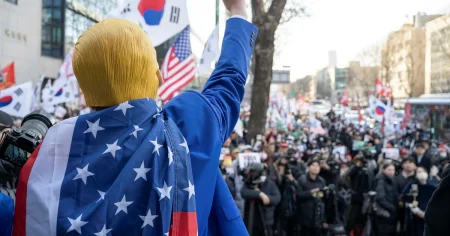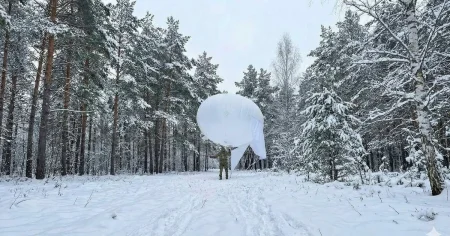The political landscape of Germany has been dramatically reshaped in recent weeks, culminating in a no-confidence vote against Chancellor Olaf Scholz on Monday. While Scholz orchestrated the vote himself, its outcome underscores the deep fissures within the governing coalition that ultimately led to its collapse. The vote, which Scholz lost with 394 votes against him, paves the way for snap elections expected to take place on February 23rd, considerably earlier than originally scheduled. This accelerated timeline thrusts Germany into a swift and potentially volatile election cycle. The atmosphere in the Bundestag was charged as Scholz took the podium, met with a mixture of cheers from his supporters and jeers from the opposition, highlighting the polarized political climate.
The Chancellor’s request for a no-confidence vote was a calculated move, following the tumultuous dismissal of his liberal Finance Minister six weeks prior. This dismissal effectively shattered the fragile coalition government, leaving Scholz to navigate the choppy waters of a minority government until the upcoming elections. During his address to the Bundestag, Scholz sought to reassert his leadership and present himself as a viable candidate for the chancellorship despite the recent setbacks. He framed the collapse of the coalition as a consequence of his former partners’ lack of ”moral maturity,” implicitly criticizing the liberal FDP’s behavior and its perceived detrimental impact on both the government and the democratic process.
Despite the government’s internal struggles, Scholz highlighted what he considered to be key achievements during his tenure. He cited increased minimum wages, a decrease in asylum seekers, and reduced food taxes as positive outcomes of his policies. Importantly, he reaffirmed Germany’s commitment to supporting Ukraine, albeit with clearly defined boundaries. Scholz explicitly stated that no long-range missiles or German troops would be deployed to the conflict under his leadership, seeking to reassure both domestic and international audiences about the limits of German involvement. Furthermore, Scholz attempted to recapture the spirit of his successful election campaign three years prior, emphasizing his commitment to improving the lives of ordinary citizens through policies focused on minimum wage increases, improved pensions, and addressing the pressing issues of ailing rail infrastructure and neglected roadways.
However, the opposition, led by Friedrich Merz of the Christian Democratic Union (CDU), seized the opportunity to challenge Scholz’s narrative. Merz, considered a strong contender for the chancellorship, pointedly questioned Scholz’s track record, highlighting the SPD’s long history of participation in various government coalitions over the past two decades. He challenged the Chancellor’s claims of progress, asking rhetorically what the SPD had accomplished during their extended periods in power and accusing Scholz of being out of touch with the realities faced by ordinary Germans. The CDU leader also launched a sharp attack on the Scholz government’s energy policy, a contentious issue that mirrors similar debates in neighboring countries. Merz criticized the government’s decision to phase out nuclear power and the stagnation in the development of wind energy, arguing that these policies have contributed to soaring electricity prices, not only within Germany but also across its borders. He accused Scholz of embarrassing Germany within the European Union and suggested that the resentment felt by other countries towards Germany was warranted due to its energy policies.
The current political climate in Germany is highly uncertain. Recent polls place the CDU in the lead, with the far-right AfD projected to become the second-largest party, relegating the SPD to a concerning third place. Within the SPD, the specter of the 2005 no-confidence vote against then-Chancellor Gerhard Schröder looms large. Schröder not only lost the vote but also the subsequent snap election, paving the way for Angela Merkel’s 16-year reign. This historical precedent adds a layer of anxiety to the SPD’s current predicament. The next two months leading up to the election will be crucial for all parties involved, and the potential for significant shifts in public opinion remains high.
In the interim, Scholz’s red-green minority government will continue to govern until a new government is formed after the elections. This period of minority government could be marked by political instability and limited ability to implement significant new policies. The upcoming elections will be pivotal in determining Germany’s political trajectory and will have significant implications not only for the country’s domestic agenda but also for its role within the European Union and on the global stage. The campaign promises, political maneuvering, and ultimately the choices made by German voters will shape the nation’s future for years to come.














